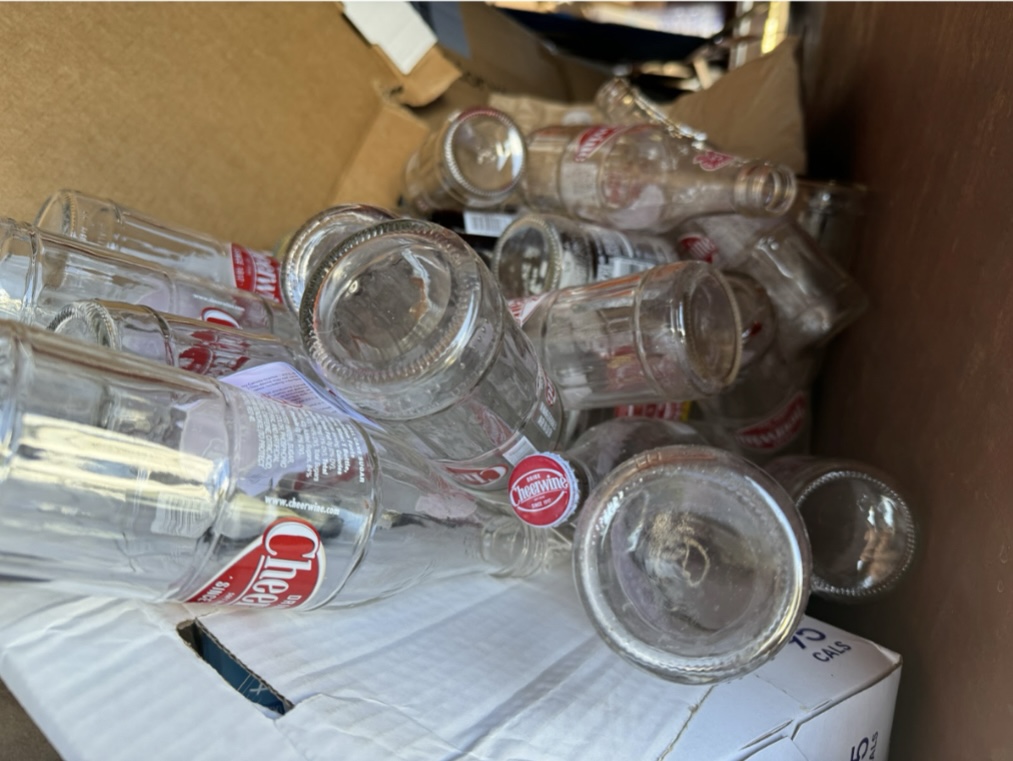Recycling is a sustainable way to help the environment. It keeps waste and other products out of landfills and environments, but this can be a hard task for some people due to accessibility of recycling management systems or due to the materials that some folks possess.
A little less than a mile north of downtown Athens is a solution. That place is the Center for Hard to Recycle Materials (CHaRM). The CHaRM facility provides a local, “convenient” way to dispose of regular recyclables and other materials that would otherwise fill up landfills causing a mass pile of non-degrading material to pollute the environment.

What is CHaRM?
CHaRM exists as a place for items that “can’t be recycled at the curb” because of their “chemical composition, hazardous components, size and/or shape.” The CHaRM website lists all of the material that is accepted, including automotive fluids, harsh and cleaning chemicals, gas tanks and physical media storage. The facility collects these materials for reuse, recycling and in some cases, safe disposal, according to ACC.gov.
“I had stuff and I did not want to throw it in the trash,” said Mary McDonald, a local resident, when speaking on her styrofoam. “This is convenient.”
Mary McDonald uses CHaRM to help recycle her waste materials including such things as styrofoam. Styrofoam is very difficult to recycle due to its structure and material. It crumbles and scatters therefore making it hard to contain and recycle without the proper procedures. When styrofoam gets into the environment, it takes 500 years for the plastic to decompose. These tiny pieces also present a potential danger to wildlife that could mistake it for food, according to SCIENCING.com.
Through July 2023 to February 2024, CHaRM has processed 6,515 pounds of styrofoam, according to Joe Dunlop.
CHaRM is open to anyone, not just residents in Athens-Clarke County. It has a drive-thru-style service system that makes it accessible for visitors to drop off their material.

Loads of regular mixed recyclables such as plastic and glass bottles, cans, mixed paper and cardboard are free to process. Scrap metal and food scraps are also included. It is a $3 per trip facility fee for businesses and residents of Athens-Clarke County and an $8 per trip facility fee for businesses and residents outside of the county for loads containing other materials.
Visitors drive in and are asked what they are dropping off then are told where to drive to based on their material. If anyone needs assistance unloading their vehicles, employees step up to help.
Impact
Through July 2023 to February 2024, CHaRM has kept 168.8 total tons of waste out of landfills, according to Joe Dunlop, the waste reduction administrator for the Athens-Clarke County Solid Waste Department (ACCSWD). Last fiscal year (July 2022-June 2023), the center processed 223.8 tons in total waste.
The center has made a noticeable impact on the community according to the CHaRM employees. They have seen first-hand how it has helped the environment. For some residents it allows them to do their part in recycling in ways that otherwise wouldn’t be available.
“It keeps harsh chemicals out of landfills,” said Joe Green, an employee at CHaRM when speaking on some things he has seen it do for the community.
An estimated 15-20 tons of harmful chemicals were processed and kept out of landfills by CHaRM, according to Joe Dunlop. This is 15-20 tons that were kept from “leaking toxic chemicals into the ground and water supply,” according to Conservative Law Foundation.
Seth Manus is a senior majoring in journalism with a certificate in sports media at the University of Georgia.








Show Comments (1)
John Ditt
Thank you for the article, Seth.